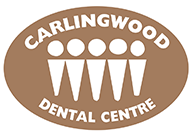Do you experience an abnormally dry mouth recently? Or perhaps you’ve been having issues swallowing or chewing? If this sounds familiar, you may have what is called xerostomia or dry mouth - a condition which prevents or slows down the production of saliva. If not treated, dry mouth can contribute to many minor health issues and also be a sign of more serious diseases. Plus, dry mouth can also cause bad breath - something that no one wants to have. If you think you may be suffering from xerostomia, read further to find out about the causes and cures.
Symptoms
Common symptoms of dry mouth typically include dry lips or throat, difficulty chewing and swallowing, slowed speech, burning mouth or tongue, and dry or sticky feelings in your mouth. You may also experience persistent mouth or tongue sores.
Causes of Xerostomia
If you have noticed similar symptoms such as these, it’s important to immediately talk to your doctor and dentist. Commonly, dry mouth is caused by prescription and over-the-counter medications, but there could be other underlying causes or health problems at play.
Dry mouth can be associated with minor oral issues like tooth decay and slowed speech, but also serious conditions such as diabetes or a salivary gland infection, among many others. And you may also be at greater risk for fungal and viral infections in your mouth. This is why it’s vital to contact your health care practitioner and dentist - they can help identify what the exact causes may be.
Care Tips
You can help alleviate the symptoms with some simple care tips. Start with avoiding alcoholic, caffeinated or sugary drinks and foods. And instead of drinking hot or cold water, try sipping room temperature water throughout the day. You should also drink plenty of water around meals and carry a water bottle with you at all times. If you’re a smoker, you should try to limit your smoking or begin a smoking cessation program, as smoking will affect your saliva production. And at night time use a humidifier when you go to sleep, it will add moisture to the air in your bedroom.
Health Treatment
Your dentist can help you by developing a treatment plan to improve your symptoms and health conditions. This can involve antibacterial and antifungal mouthwashes, home fluoride treatments and xylitol gum. They can also keep a close eye on any potential tooth decay and mouth sores that you may be experiencing.
Saliva is important to maintain proper health and care of your teeth and mouth. If you have a persistent dry mouth, reaching out to your dentist and doctor is the best step to protecting your oral health.


